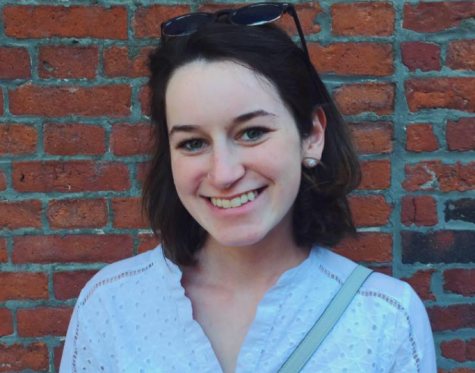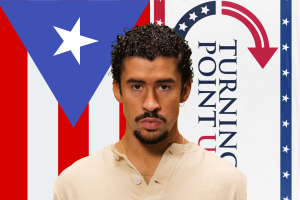From presidents to Twitter, polling counts
November 18, 2015
With the 2016 presidential election right around the corner, Director of the Suffolk University Political Research Center David Paleologos and Polling Club President and Founder Elainy Mata find that polling at Suffolk is crucial.
Paleologos has just finished a poll for the Democratic New Hampshire primary. The poll showed former Secretary of State Hillary Clinton leading, much to the Suffolk Polling Center’s surprise, given that Democratic candidate Bernie Sanders was thought to be the frontrunner.
Mata backed this, arguing that Sanders attracts younger voters, comparing his race so far to that of President Barack Obama’s in 2008.
Paleologos explained how polls may be the reason why some candidates receive votes, as he finds that polls impact candidates’ momentum and their ability to raise funds. For example, if someone is doing better in the polls one week, they tend to raise more money the following week.
“Polls tend to lead news cycles,” said Paleologos.
Mata noted that “in every email from presidential candidates, somebody always mentions a poll.”
Voter registration is one aspect of polling and voting that still remains an issue for those running polls like Paleologos and Mata. For example, Sanders uses his rallies to encourage voter registration by actually registering supporters at his events.
However, it is difficult to get college students to vote in elections.
“If they have to leave their campus, they’re not going to do it,” said Mata in dismay.
Paleologos agreed in his presentation Monday detailing the latest polls, citing that in the most recent presidential election, 90 million Americans did not vote, which is 30 million more than those who voted for Obama.
“So many people have given up on the two-party system,” he said.
Paleologos drew attention to the fact that, fortunately, Suffolk is known for its realiability. As a result, Paleologos explained, “Suffolk does better with their response rates.” This is due to the fact that Suffolk uses both landlines and cell phones for polling, a combined methodology not used by many other pollsters.
Mata noted that online polling is starting to take over. Twitter, for example, uses hashtags. While social media works for distribution, Mata said that the one method that works is incentive.
“The adding incentives gets more people to respond,” she said.
It is important to note that, as Mata put it, polling “isn’t just political.” Polls also focus on pop culture and public opinion.
Paleologos finds that public opinion “is volatile, and it is thoughtful.” He explained that while opinions can change very quickly, there is also a more emotional standard seen in polls.
Winning an election, according to Paleologos, means seriously looking at “what level does any candidate connect with the average voter in any emotional way?”
In the Democratic New Hampshire primary poll, for example, “Democrats are trading in trust for electability,” said Paleologos.
The poll found that while most found Clinton not the most trustworthy, they did find her the most electable.
“People take in all the messages and signals they are exposed to … and they process it, and after processing it they have an emotional response,” he said.
On campus, polling is just as important and present. At Suffolk, the Polling Club focuses on a variety of issues.
“We do surveys for other clubs and departments on campus, used mostly by SGA,” Mata said.
The Polling Club was founded by Mata just last year. She noticed that when someone simply says something, it’s hard to put that in a research paper. But when numbers are used, the study has a greater validity.
The work that goes into polling ranges from finding an appropriate sample size to understanding the data at the end of an investigation. It is about “looking at the data and wondering what each number really means,” said Mata.
Mata said she finds that there are key misunderstandings about what polling is. One, she explained, is that “it’s not just politics, it’s everything.” Furthermore, she said that polling is happening even when we don’t realize it, from using a hashtag on Twitter to the color of the cups at Starbucks.
The Polling Club wants to both get people more excited about polling and get them registered to vote, including voting outside one’s district by obtaining an absentee ballot.
Rock the Vote, a non-profit aimed toward getting young people to vote, politically aware, and informed, will help out at the club’s upcoming mock election day event. Given that the Massachusetts primary will be held the second Tuesday in March, Mata said the event will likely be held in January after winter break.
“The best way to get the answer is to ask questions and get data,” Mata said. “Know that the people doing this work, do a lot of work.”







